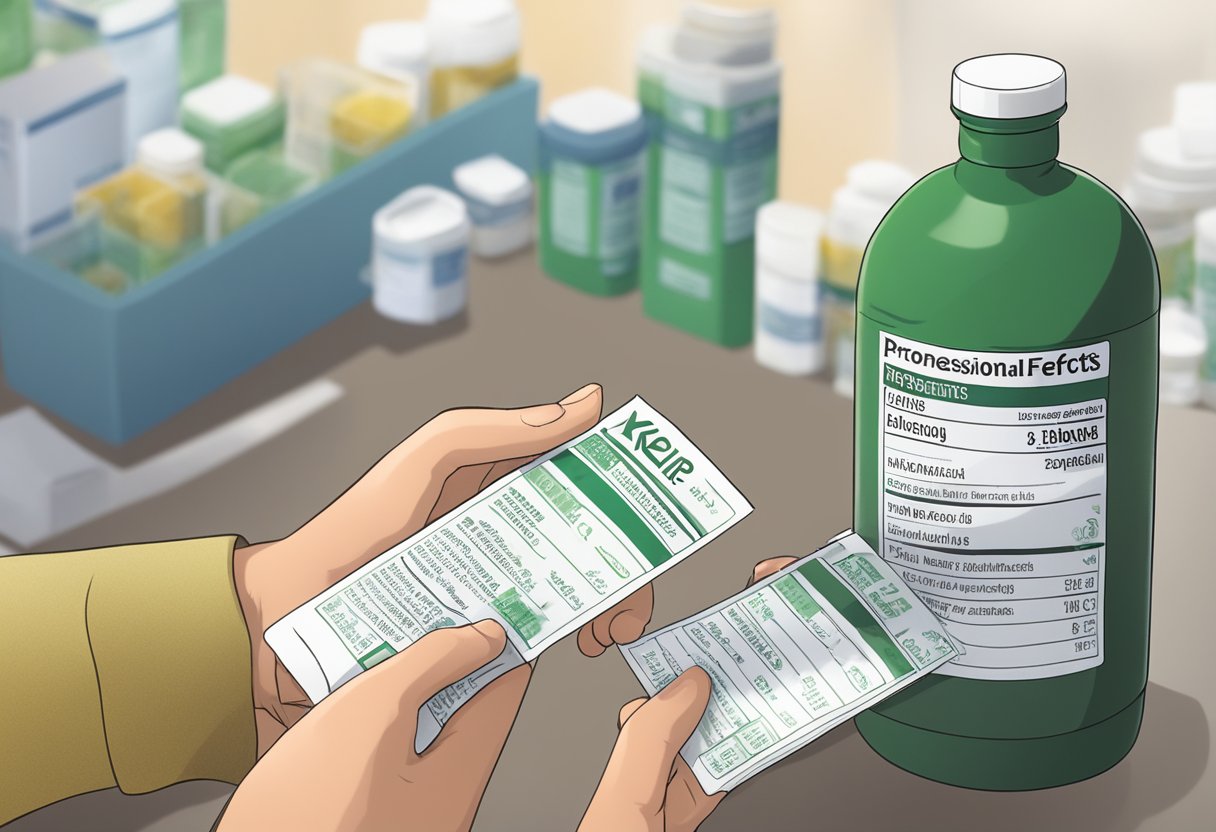Kelp, a type of seaweed rich in nutrients, has become increasingly popular as a dietary supplement due to its potential health benefits. While it’s a natural source of essential vitamins and minerals, particularly iodine which is critical for thyroid function, the dosage of kelp supplements can vary. It's important for individuals to understand how much to take to reap the benefits without experiencing adverse effects.
Deciding on the correct dosage of kelp supplements depends on various factors, including a person's health status, nutritional needs, and the concentration of the particular supplement. Overconsumption can lead to iodine toxicity, whereas insufficient intake may not provide the desired health advantages. Therefore, consulting a healthcare provider is essential to determine an appropriate dosage tailored to an individual’s specific dietary requirements.
When considering kelp supplements, it's crucial to opt for high-quality products from reputable sources to ensure safety and efficacy. The concentration of active components can differ between brands, and products contaminated with heavy metals can pose health risks. A detailed understanding of how to identify high-quality kelp supplements and awareness of possible side effects ensures informed and safe usage.

Key Takeaways
- Kelp supplements offer a potent source of iodine and other nutrients beneficial for health when taken in correct doses.
- Personal health factors dictate the ideal dosage, emphasizing the need for professional health advice.
- Quality and purity of kelp supplements are paramount for safety and effectiveness.
Determining Your Dosage

Determining the correct dosage of kelp supplements involves considering individual factors and adhering to suggested guidelines.
Factors Influencing Dosage
Body Weight: An individual's weight can influence the amount of kelp supplement they should take. Generally, those who weigh more may require a higher dosage.
Health Goals: The specific health objectives one aims to achieve with kelp supplementation, such as thyroid support or mineral supplementation, also dictate the appropriate dosage.
Sensitivity: Some individuals may be more sensitive to kelp and iodine, necessitating a lower starting dosage.
Recommended Dosage Ranges
-
Standard Range: Most kelp supplements suggest a dosage of 150-300 micrograms of iodine per day.
-
Consult with a Professional: It is important for individuals to consult with a healthcare professional to determine the exact dosage that is right for their specific needs and health status.
Safety and Side Effects

When considering kelp supplements, it's crucial to be aware of the potential risks and interactions with medications, to ensure safe and effective use.
Potential Risks
Kelp contains iodine, and while this mineral is necessary for thyroid function, too much can lead to adverse effects. The recommended daily intake of iodine for adults is 150 mcg, and supplements can vary widely in their iodine content. Excessive intake may result in hyperthyroidism or hypothyroidism, conditions characterized by the overactive or underactive thyroid gland, respectively. Consumers should be vigilant and not exceed the recommended dosage on the kelp supplement's label, which typically ranges from 300 mcg to 600 mcg of iodine per day.
Heavy metal contamination is also a concern with kelp. As a seaweed, kelp may absorb and accumulate toxic metals such as arsenic, lead, and mercury from seawater. Manufacturers should adhere to strict quality control to minimize these contaminants.
Interactions with Medications
Kelp supplements may interact with certain medications, affecting their efficacy. For example:
- Thyroid medicines: Since kelp influences thyroid function due to its iodine content, it can interfere with thyroid medications.
- Anticoagulants (blood thinners): Kelp has the potential to alter blood clotting processes, impacting the effectiveness of these drugs.
- Anti-hypertensives: Due to its high potassium content, kelp might affect blood pressure and interact with medications designed to control hypertension.
Individuals should consult their healthcare provider before incorporating kelp supplements into their regimen, particularly if they are on any medications.
Sourcing Quality Kelp Supplements

When considering kelp supplementation, the focus must be on obtaining a product of high purity and guaranteed potency. This ensures an appropriate and safe dosage.
Labels and Certifications
When selecting a kelp supplement, one should scrutinize the label for detailed information about its contents. Looking for third-party testing and verification can be reassuring. The label should clearly state the amount of iodine, which is a primary active component in kelp, and a critical factor in determining how much kelp supplement one should take. Most labels will advise on the recommended daily intake.
It's imperative to check for certifications such as USP (United States Pharmacopeia), NSF International, or Non-GMO Project verified. These seals indicate that the product has undergone rigorous testing for quality and purity.
Additionally, organic certifications (such as USDA Organic) suggest the kelp has been sourced from waters free of pollutants and heavy metals. This can influence the decision on how much of the supplement to safely consume, as contaminant levels should be minimal.
Frequently Asked Questions

In this section, readers will find concise, reliable answers to common questions regarding the use of kelp supplements.
What is the recommended daily dosage for kelp supplements?
The recommended daily dosage for kelp supplements generally varies between 600 to 1,500 micrograms of iodine, but it's crucial to follow the specific product's guidelines or consult a healthcare professional.
Should kelp be taken with food or on an empty stomach?
Kelp supplements are best taken with food to improve absorption and minimize possible stomach upset.
How long does it typically take to notice benefits from sea kelp tablets?
Individuals may notice benefits from sea kelp tablets within a few weeks to a few months, depending on the targeted health concern and personal physiology.
Can there be any adverse effects from consuming too much kelp?
Yes, consuming too much kelp can lead to iodine toxicity, which can cause thyroid issues and other health problems. It is essential to adhere to recommended dosages.




